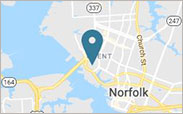Our Child and Adolescent Psychiatry Fellowship curriculum ensures all fellows have a broad set of training experiences that include traditional mental health practice settings as well as innovative care delivery approaches. Because the program is educationally-driven without service-dependent experiences, fellows can select specific clinical settings or patient populations to fulfill program and RRC requirements. 
In the first year, the fellows focus on acute care in the inpatient, partial hospitalization, and inpatient pediatric consultation settings, all through a family-centered lens on interdisciplinary teams. On these rotations, fellows hone skills in developmentally-specific assessment and the broad array of interventions including psychopharmacologic and therapeutic approaches. First year fellows also begin their longitudinal outpatient therapy experience that continues throughout the fellowship. Through training experiences and didactics fellows develop an appreciation of typical development, developmentally-specific presentations of psychopathology as well as an understanding of adaptation to illness.
- Inpatient (3 months including General CAP, Psych-Med and Neurodevelopmental Units)
- Partial Hospitalization Program (2 months)
- Consultation Liaison (2 months)
- Med-psych unit (1 month)
- Emergency psychiatry (1 month)
- Neurology (1 month)
- Elective (2 months)
- Half-Day Longitudinal Experiences
- Pediatric primary care consultation
- Forensic consultation
- School consultation
- Community consultation
- Therapy x 6 months
The second year focuses on longitudinal outpatient care, including therapy, team-based outpatient care in a multidisciplinary practice, crisis evaluations, early childhood mental health and an elective longitudinal experience. Fellows develop a strong basis of psychopharmacologic skills and therapeutic approaches across a diverse set of clinical sites.
- Therapy (1 day per week)
- Outpatient practice (2 days per week)
- Crisis (1/2 day per week x 6 months)
- Early childhood (1/2 day per week x 6 months)
- Elective (outpatient and/or community) (1 day per week)
Because our program is small and educationally-driven, substantial tailoring to individual interests is possible within the scope of the RRC requirements.
Didactics
Our fellows have a protected half-day of didactics throughout their training. The curriculum includes separate tracks for the first year and second year fellows, as well as shared experiences with all of the fellows together as well as with other learnings, including psychology trainees, pediatric residents, general psychiatry residents, and medical students. Didactics are small group learning experiences with an expectation of active engaged discussion, fellows leading discussions, and flipped classroom opportunities. All didactics will be intentionally focused on building practical clinical skills and critical thinking. Community-based “scavenger hunts” will be built into some didactics.
 The year begins with Orientation and Foundations of CAP for the first year fellows and Transition to Practice and Clinical Issues courses for second year fellows. All fellows participate in a psychopathology/psychopharmacology seminar, with second year fellows taking a leadership role in the course.
The year begins with Orientation and Foundations of CAP for the first year fellows and Transition to Practice and Clinical Issues courses for second year fellows. All fellows participate in a psychopathology/psychopharmacology seminar, with second year fellows taking a leadership role in the course.
The curriculum includes an alternating set of courses that allow comprehensive coverage of child development from perinatal to young adulthood, a Contexts of Care course focused on social determinants of health, race and culture, and the mental health needs of LGBTQ+ youth, military-involved youth, and those involved in the legal system. The curriculum also provides seminars around pediatrics for CAPs, innovations in systems of care, and a Fellow’s Choice module. The alternating year focuses on intensive training in evidence-based treatments including Motivational Enhancement, Parent Child Interaction Therapy, Cognitive Behavioral Therapy, Family Based Therapy and Dialectical Behavioral Therapy.
All fellows participate in mentored quality improvement projects and have the opportunity for mentorship in more extensive scholarly projects.
Didactics are intentionally seminar-based with active learning, fellow presentations, and guest speakers on specialty topics.
Other Educational Opportunities
- Child Psychiatry Grand Rounds: Monthly scholarly presentation by local or outside presenter
- Schwartz Rounds: Quarterly interdisciplinary rounds focused on improving and supporting communication and compassionate health care to patients and families
- Clinical Skills Verification: Annual scheduled time for CSV’s for the whole program in addition to CSV opportunities in each rotation
- Psychiatry Grand Rounds (optional): Monthly scholarly presentation by local or outside presenter
- Pediatrics Grand Rounds (optional): Weekly scholarly presentation by local or outside presenter
- Insights into Autism (optional): Annual regional conference with national speakers focused on the needs of children and families with Autism Spectrum Disorder
- AACAP National Meeting attendance encouraged
Links to Rotation Sites
- Primary Care Pediatric Consultation: CHKD General Academic Pediatrics
- Neurology: CHKD Neurology
- Child Abuse: CHKD Child Abuse Services
- Community Consultation: EVMS Brock Institute and EVMS Community Health Research
- Educational Consultation: Yellowhab
